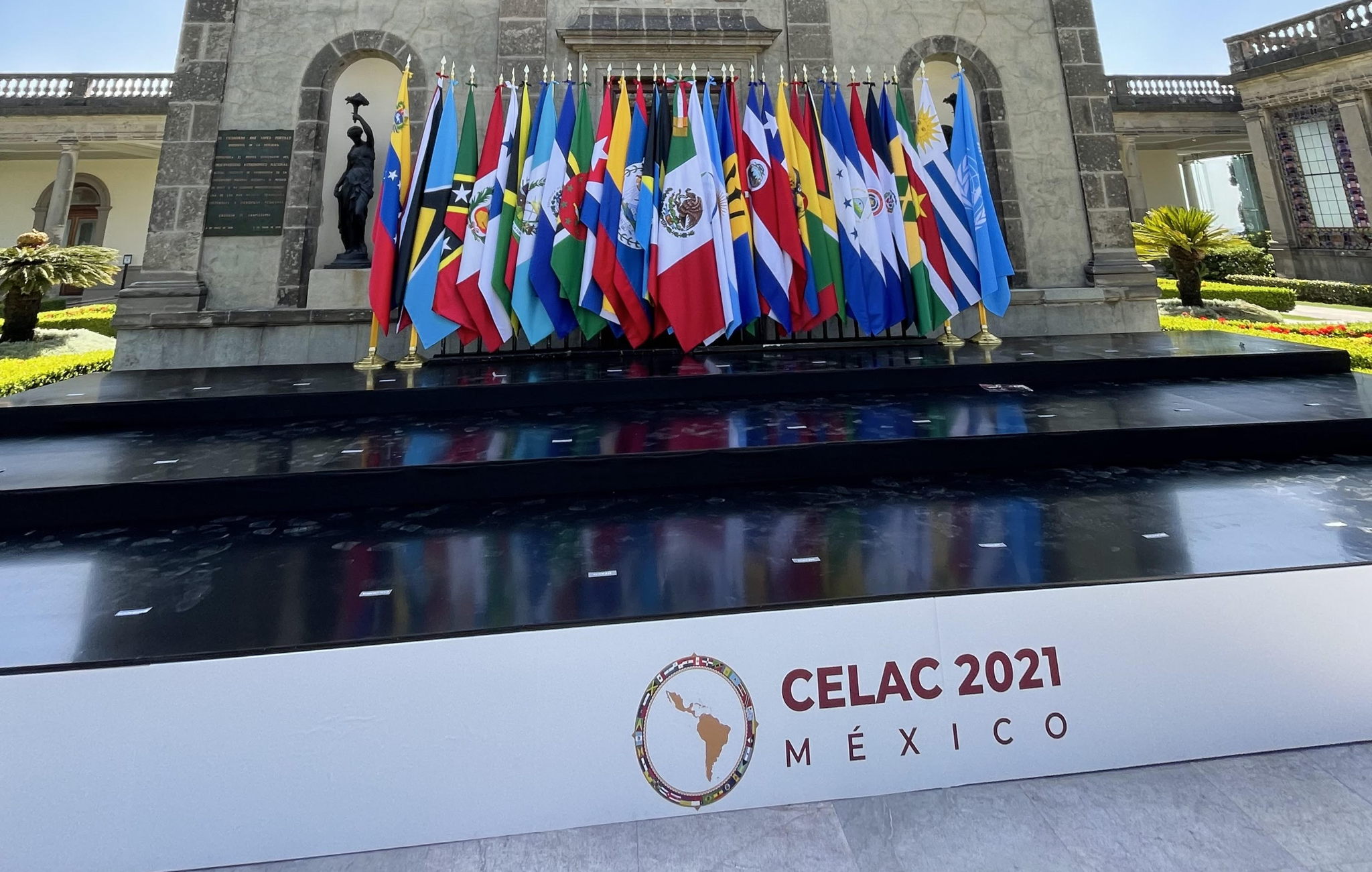Statement by OECS Director General at 21st CELAC Foreign Ministers Meeting
Media Statement
Director General of the OECS, Dr. Didacus Jules, addressed the 21st Meeting of Ministers of Foreign Affairs of the Community of Latin American and Caribbean States (CELAC) on July 24, 2021 in Mexico City, Mexico.
View the complete statement below.
Esteemed Colleagues,
I bring triple greetings from the Governments of Dominica and Saint Lucia and from the 11-member integration movement – the Organisation of Eastern Caribbean States.
We express our appreciation to the Government of Mexico for its hospitality and for the tenacity in its pro tempore leadership.
The circumstances under which we meet are already well established and it is best described as a concatenation of crises – from pandemic to economic shutdown, to hurricanes and volcanic eruptions. Circumstances, which far from becoming a post-pandemic expectation, are clearly becoming a continuing and deepening cycle of concurrent crises.
As you have so correctly indicated, Mr. Chair, now even more than ever – at this the anniversary of the birth of Simon Bolivar – the 21st Meeting of CELAC is vital to forging a stronger architecture of regional integration in the New Normal of concurrent crises.
The Future of CELAC
The most important task facing us today is the re-definition and reiteration of the importance of CELAC as an instrument for the assertion and protection of the sovereignty of Latin America and the Caribbean.
Times unusual – such those in which we now live – require approaches unusual. The major lesson of the pandemic is that in the face of our existential threats – in the words of the Guyanese poet Martin Carter – all are involved, all are consumed. We cannot face a future so uncertain saddled by inflexible postures and the maintenance of old differences. The road ahead requires that we overcome the things that divide us and build on the imperatives that unite us.
This redefinition of CELAC must necessarily go beyond statements of intent to the construction of platforms of concrete collaboration. These can build on the initiatives already started in health, disaster response and other areas.
The Caribbean and OECS Imperative
For us, as small island developing states, the OECS and the Caribbean we urge – in revisioning CELAC – that attention be given to the particular needs of SIDS, that include fair trade and climate financing.
Cuba
For 61 years, the United States embargo has been a knee on the throat of Cuba constricting its ability to determine its sovereign destiny.
For 61 years, that strangulation has choked the Cuban people daily by inflicting the destitution of simple needs to create complex problems.
For 61 years, the overwhelming majority of the United Nations have implored… have demanded the removal of this blockade.
Consistent with the Declaration of Latin America as a Zone of Peace, we energetically reiterate the principles of non-intervention, respect for sovereignty of states and the inalienable right of our peoples to shape the future of peace, progress and prosperity – the future that we all want.
I end, Mr. Chairman, by reciting the mantra of the OECS – that we are always Stronger Together – and we look forward to an even more committed engagement of the Eastern Caribbean States in CELAC and the application of the dream of Bolivar.
 OECS Director General, Dr. Didacus Jules, attends 21st CELAC Meeting of Ministers of Foreign Affairs.
OECS Director General, Dr. Didacus Jules, attends 21st CELAC Meeting of Ministers of Foreign Affairs. UN Secretary General, António Guterres, addresses the 21st CELAC Meeting of Ministers of Foreign Affairs.
UN Secretary General, António Guterres, addresses the 21st CELAC Meeting of Ministers of Foreign Affairs.




